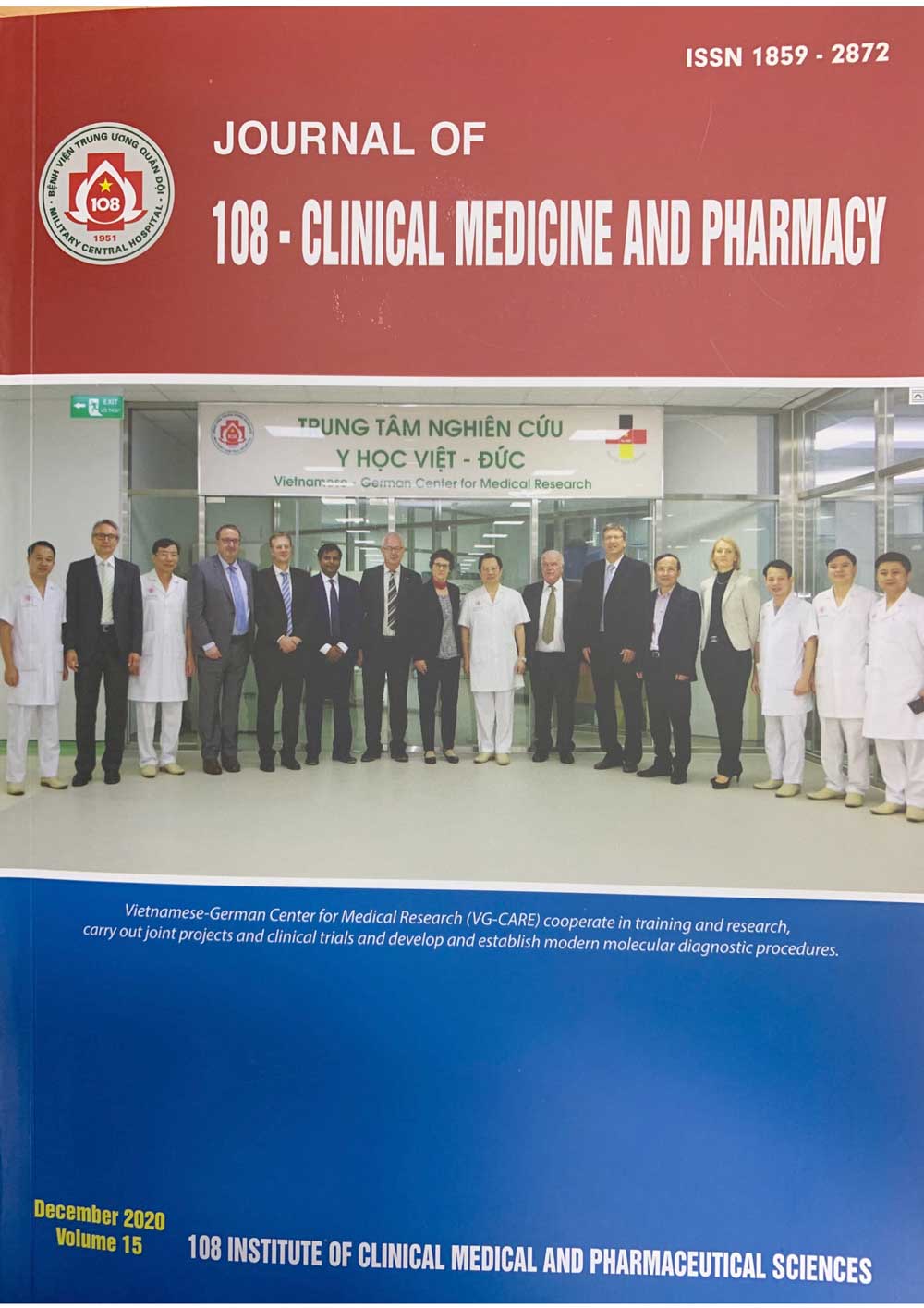Characteristics of elderly with acute poisoning at Vietnam Poison Control Center
Main Article Content
Keywords
Tóm tắt
Objective: The aim of this study was to identify the prevalence and causes of acute poisonings in older people admitted to Vietnam Poison Control Center (PCC). Subject and method: A retrospective descriptive study was conducted at the PCC for 8 months in 2019 with 275 acute poisoned patients aged 60 and older. The questionnaire collected data was based on the International Program for Chemical safety (IPCS) format. Entered data on Redcap and using SPSS version 22.0 for analysis. Result: The prevalence of acute poisoning was higher in female elderly. The most common cause of poisoning was poisonous animals (44.7%). The number of elderly patients suffered from acute poisoning increased in April, July and August. Ingestion and bite were two most common routes of exposure (53.8% and 41.1%). Conclusion: Acute poisoning was common in the elderly and increased in 4th, 7th and 8th month of the year.
Article Details
Các tài liệu tham khảo
2. Hung HT, Du NT, Höjer J (2008) The first poison control center in Vietnam: Experiences of its initial years. Southeast Asian J Trop Med Public Health: 310-318.
3. Xuan Dang Thi, Du Nguyen Thi (2000) Acute poisoning, antidote administration and regulation in Vietnam. The first Asia-Pacific Regional Conference on Antidote Use and Administration Taipei-Taiwan: 45.
4. Gummin DD, Mowry JB, Spyker DA et al (2016) Annual report of the american association of poison control centers' national poison data system (NPDS): 34th annual report. Clin Toxicol (Phila) 55(10): 1072-1252.
5. The World Health Organization in Collaboration with the United Nations Environment Programme and the International Labour Organisation. Guidelines for Poisoning Control (2002).
6. Anna Piekarska-Wijatkowska, Katarzyna Kobza-Sindlewska, Anna Rogaczewska et al (2016) Intentional poisoning among elderly people-residents of a large urban agglomeration in poland. Hum Exp Toxicol 35(12): 1328-1336.
7. Chen Feng, Jun-ping Wen, Xiao-ping Wang et al (2010) Epidemiology and characteristics of acute poisoning treated at an emergency center. World Journal of Emergency Medicine 1(2): 154-156.
 ISSN: 1859 - 2872
ISSN: 1859 - 2872
